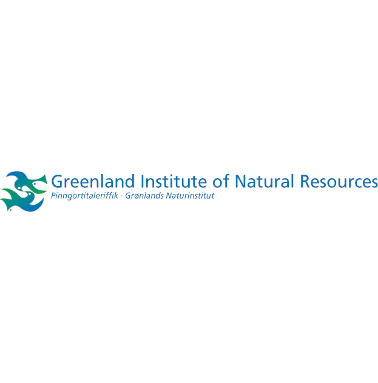Greenland Institute for Natural Resources
The Greenland Institute of Natural Resources (GINR) conducts research into Arctic ecosystems, monitors the living resources and the environment in Greenland and advises the Government of Greenland and other authorities on sustainable exploitation of living resources and safeguarding the environment and biodiversity.
The Institute has three departments: Department of Fish and Shellfish, Department of Birds and Mammals, and Department of Environment and Mineral Resources. Furthermore, the Greenland Climate Research Centre (GCRC) is embedded in GINR, and conducts research into the effects of climate change on the Arctic environment and Greenlandic society.
GCRC is concerned with the expected impacts of climate change on Arctic marine, limnic and terrestrial environments and on Greenlandic society, including adaptation and prevention strategies. Situated in the Arctic, GCRC has a number of advantages, the primary one being the possibility for year-round fieldwork supported by modern facilities and logistical support.
The centre forms an integral part of the Greenland society as one of the aims of our extensive range of established on-going multidisciplinary research and monitoring programs is to investigate how society can be better prepared for climate change. The GCRC contribution to REXSAC involves the Climate and Society Research Group, led by Professor Mark Nuttall, a group that links Ilisimatusarfik (University of Greenland) and GCRC.
The group’s mission is defined as addressing issues of pressing contemporary concern to Greenland, bringing together natural and social scientific approaches to understand the impacts of climate change upon communities.Our work is concerned with understanding climate change within the context of other changes and societal and economic transformations in Greenland, including resource development and extractive industries.
The GINR contribution to REXSAC will be to leverage existing field data and methodologies to produce new knowledge concerning mining, human-environment relations, economic activities, environment and climate change in Greenland, and contribute to interdisciplinary approaches to integrated understanding of extractive industries, climate change, and policy. This research is focused on the concerns of local communities in west and northwest Greenland about the effects of mining activities.
The group’s contribution to REXSAC will explore how communities participate in the collection of data concerning social and climatic change, how those processes serve to empower communities in taking decisions, and how environmental and social impact assessment frameworks can be strengthened. This complements research in the natural sciences at GCRC and our work aims to improve understanding of the interconnections between climate change, the use of natural resources, non-renewable resource development, and social-ecological systems in Greenland.



